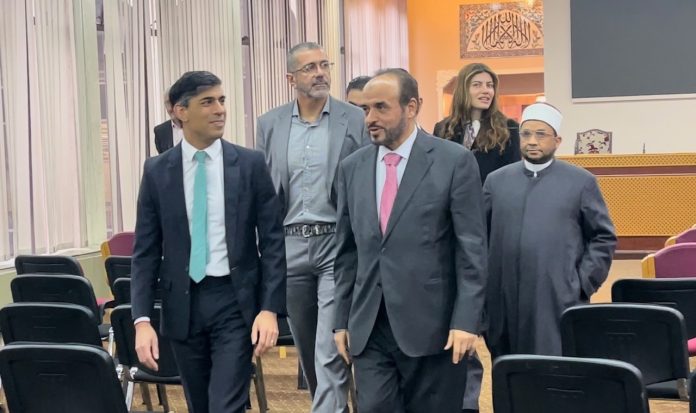27 March 2024
Over 400 British imams and religious scholars (Ulama) have united to denounce the UK government’s recent move to redefine extremism, particularly targeting Muslim organizations, as announced by Communities Secretary Michael Gove.
Gove introduced a contentious definition of extremism last week, stating that it was “non-statutory” and did not entail new legal powers. However, it aimed to identify and hold accountable several Muslim organizations, including Muslim Association of Britain (MAB) and Cage (advocacy organisation which aims to empower communities impacted by the War on Terror), under the pretext of their “Islamist orientation.”
The government’s justification for the new definition cited an “increased extremist threat” following the October 7 attacks in Israel, referencing a surge in reported anti-Semitic and anti-Muslim hate crimes. In response, the coalition of imams and scholars issued a letter on Friday strongly condemning the government’s actions. They criticized the concept of extremism, labeling it as academically baseless and rooted in neoconservative ideology. Furthermore, they accused Gove of a historical bias against Islam and Muslims, alleging that the move was motivated by pro-Israeli influences within the government to suppress legitimate activism against Israeli policies toward Palestinians.
The letter highlighted the government’s hypocrisy, alleging that while espousing British values such as democracy, it simultaneously stifled democratic dissent that opposed its agenda. The imams questioned the government’s commitment to dialogue and engagement with the Muslim community, suggesting a preference for divisive tactics. Various Muslim organizations, including the MCB, as well as equality and rights campaigners such as The Runnymede Trust and Amnesty International, joined in condemning the government’s definition of extremism.
Gove’s department defended the new definition, stating its intended use by government officials to determine engagement and funding decisions. However, it reiterated that the definition held no statutory power and did not affect existing criminal law. During his parliamentary address, Gove singled out groups he deemed as having “Islamist” and “neo-Nazi” ideologies, citing examples of organizations he considered concerning due to their Islamist orientation.
The secretary described Islamism as a “totalitarian ideology” seeking to replace democracy with an Islamic state under Sharia law, tracing its roots to figures like Hassan al-Banna and Sayyid Qutb of the Muslim Brotherhood and the South Asian Jamaat-e-Islami movement.
Gove asserted that organizations like the Muslim Association of Britain, identified as the British affiliate of the Muslim Brotherhood, alongside groups like Cage and Mend, warranted scrutiny for their Islamist inclinations. He vowed to assess whether these organizations met the government’s definition of extremism and take appropriate action.




